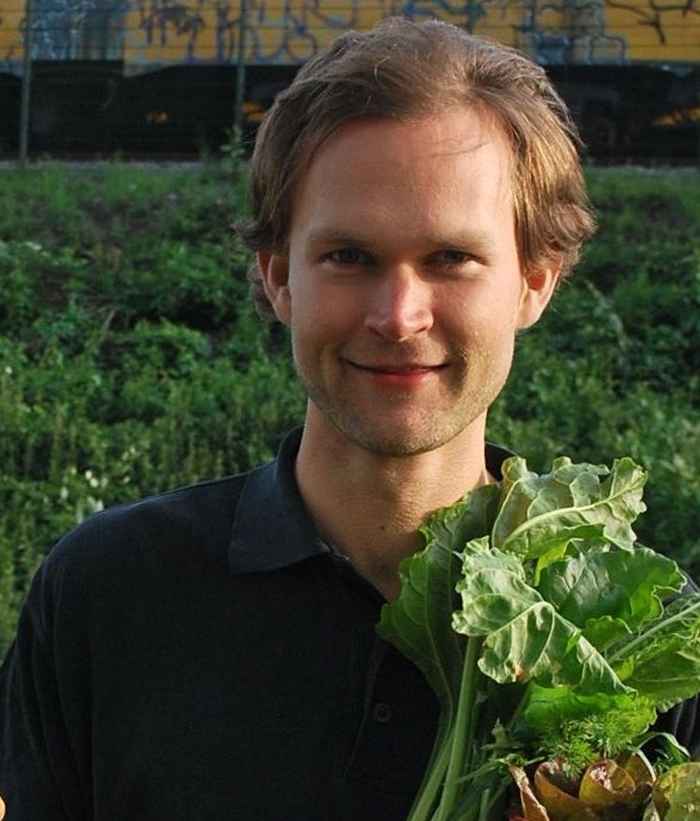Dr. Forrest Bradbury concludes Comenius Teaching Fellowship, results in ‘Maker Lab’
12 January 2021

Comenius Teaching Fellowships
The Comenius Teaching Fellowships are an initiative of the Netherlands Organisation for Scientific Research (NWO) that support professionals in higher education who want to implement innovative teaching methods, adapt curriculums for the future or improve the methods of feedback and guidance to pupils. In 2019, the proposed projects needed to fall under one of three themes (International Classroom, Smarter and better learning with technology, or Focus on student well-being) or an open theme that contributes toward the strategic agenda set by the NWO. Accepted proposals take place over the course of one academic year and are granted a budget of EUR 45,000 – 50,000.
Embracing the Maker movement
In Dr. Bradbury's project, the idea for devoting a physical science lab to open scientific inquiries was rooted in pedagogical literature suggesting that intermediate and advanced versions of these courses should focus on teaching research skills in an authentic context rather than via so-called ‘cookbook experiments.’ Through self-designed open scientific inquiries, students are encouraged to think critically and engage more thoroughly with the scientific method and experimental design. Combined with flipped-classroom methods and the open-source nature of resources made available through the wider “Maker movement”, the “Maker Lab” concept course took away the confines of the traditional, and often expensive, laboratory while stimulating students to employ these techniques across both traditional and non-traditional disciplines and spaces.
Debuting the “Maker Lab” course
Piloted in Spring 2020 and now an annual fixture in AUC’s curriculum, the “Maker Lab” course focuses on the empirical research process, from conception and experimental design to conclusions and iterative improvements. In contrast to most science lab courses, the Maker Lab’s open-inquiry, flipped lab projects allow AUC students from all majors to follow the course and learn how ideas grounded in the scientific method can be expanded and applied to disciplines across and even outside of the natural sciences.
The first portion of the course concentrates on learning and practicing experimental skills including controlling sensors with Arduinos, plotting and statistically analysing empirically gathered data, and investigating how results are influenced by design choices. Students are then asked to conceive, design and iteratively improve two open-inquiry projects of their choice. In turn, the majority of contact hours focus on students discussing problems and eventual solutions that they encounter while designing and carrying out their experiments rather than lectures or uniform, cookie-cutter experiments.
Impact of the COVID-19 pandemic
Measures to prevent the spread of COVID-19 went into effect just after the first open-inquiry projects began in March of 2020. This meant that students were sent home with small toolboxes of Maker supplies in the pilot edition. Thanks to the safety and accessibility of Maker equipment, the course and the students’ projects continued with only minor adjustments. Zoom calls between project teams and instructors made some practical questions more complicated (such as questions about electrical wiring), but other topics were actually easier in the flipped-classroom remote format, such as fixing bugs in code, discussing data and the fact that experimental setups could stay in place in students’ homes without being disturbed. The flexible and adaptive nature of the course, along with the emphasis on individual student agency, proved to be a major asset. Where other lab courses were forced to stop completely due to the closure of lab facilities or inability to access specialised equipment, Maker Lab was able to continue with little hindrance.
Conclusions and lessons learned
Upon completion and as part of the Comenius Teaching Fellowship requirements, Maker Lab was evaluated extensively, which included an instructor reflection journal, student interviews, the internationally-recognised pre/post E-CLASS survey, and AUC's own post-course student questionnaires. The evaluations showed that the course delivered the desired outcomes in several important ways. The flexible experimental tools allowed a diverse mix of students to pursue projects according to their interests, ranging from medical science to ecology to physics. Importantly, the students were proud to have conceived and completed authentic science projects while also acquiring transferable 21st-century skills in programming, digital measurement and data analytics.
Furthermore, the Maker tools and flipped-lab approach further enabled instructors to devote more contact hours to coaching students in goal setting, planning, analysing and communicating. As the course progressed to the portions involving student projects, the teaching work shifted to support and supervision whereby instructors assumed roles similar to leaders of research groups, further emulating real-world lab experiences. Students in the course quickly became experts with their chosen sensors and methods, and since their projects were novel and unique, they were wholly responsible and motivated for communicating their observations and defending their conclusions. This stands in contrast with more traditional methods of lab courses, with students producing and disseminating knowledge based on individual experience rather than passively receiving knowledge through established, uniform experiments conducted by experts.
For any questions about the project “Flipping the physical science lab course and making critical researchers”, you can contact Dr. Forrest Bradbury directly via the link below.